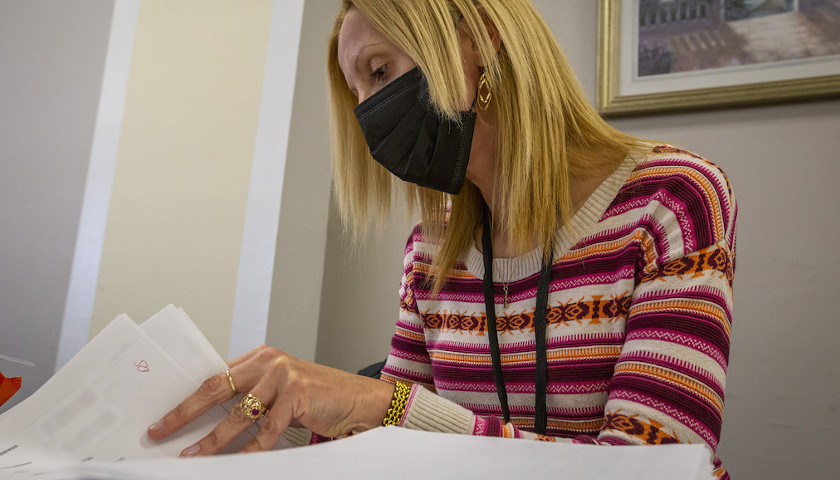The Amistad Project of the Thomas More Society said it filed a lawsuit on Thanksgiving asking the Michigan Supreme Court to physically secure all evidence of irregularities in the 2020 election and declare the results invalid on the basis of alleged unlawful conduct by state and local officials.
“In numerous instances, state and local officials brazenly violated election laws in order to advance a partisan political agenda,” said Phill Kline, director of The Amistad Project. “The pattern of lawlessness was so pervasive and widespread that it deprived the people of Michigan of a free and fair election, throwing the integrity of the entire process into question.”
The Michigan litigation, which is the product of lengthy and intensive investigations by the Amistad Project, outlines several alleged major violations by Secretary of State Jocelyn Benson and election officials at all levels and argues that these violations effectively disenfranchised millions of voters by depriving them of both due process and equal protection.
Specifically, the suit notes that Benson circumvented the explicit intent of the Michigan Legislature, which established an absentee ballot process designed to minimize the risk of fraud. Benson allegedly violated numerous provisions of this process by sending unsolicited absentee ballot applications to every household in the state without verifying whether the intended recipients were still residing at the same location, whether they were eligible to vote in 2020 or even whether they were still alive.
Benson compounded the error by establishing a process for online absentee ballot applications, again without statutory authority. This precludes the possibility of obtaining an actual signature from the voter, as required by law. The secretary of state’s unlawful actions flooded the state with absentee ballots, which are inherently less secure than in-person voting.
Courts have repeatedly found that mail-in and absentee ballots are particularly susceptible to fraud, the Amistad Project said. This vulnerability was exacerbated by the numerous irregularities during the vote counting process, particularly in Wayne County, detailed in numerous affidavits included with the Amistad Project’s litigation.
The affidavits describe election workers counting ballots from voters whose names did not appear on official voter rolls, failing to verify signatures on absentee ballots and even backdating absentee ballots that arrived too late to be counted. Eyewitnesses also reported the late arrival of tens of thousands of “unsecured and unsealed” ballots.
Throughout the vote-counting process, both election observers and the public were obstructed from meaningful access by election officials, constituting yet another violation of state law. When election workers duplicated flawed ballots that could not be read by machine, for instance, they ignored the legislative mandate that a representative from each major party sign off on every ballot — a crucial safeguard designed to prevent unscrupulous election workers from altering or otherwise defying voter intent.
Many of those election workers were paid directly by grants from an organization called the Center for Tech and Civic Life (CTCL), which was funded by $350 million donated by Facebook founder Mark Zuckerberg. Most of the grants awarded by CTCL went to jurisdictions in crucial battleground states that reliably vote for left-leaning candidates.
In addition to paying the salaries of election workers and funding the purchase of voting equipment, the CTCL grants came with strict conditions designed to promote absentee voting and discourage in-person voting. Failure to abide by those conditions would enable CTCL to revoke the grant monies, giving the private organization de facto control over the election process.
The Amistad Project is asking the Michigan Supreme Court to direct that the Michigan Legislature conduct a comprehensive investigation into all claims of irregularity and fraud in order to determine which votes are valid.
Since it is unlikely that these investigations could be completed in time to meet constitutional deadlines for appointing presidential electors, it is likely that the only remedy available in the presidential contest would be for the Michigan Legislature to exercise its lawful authority to appoint the state’s Electors, the Amistad Project said.
The Michigan suit is the latest election-related action taken by the Amistad Project. The organization on Tuesday filed a lawsuit contesting the results of the presidential election in Georgia, saying fraudulent votes cast were 15 times greater than the margin separating Donald Trump and Joe Biden, The Georgia Star News reported.
– – –
Jason M. Reynolds has more than 20 years’ experience as a journalist at outlets of all sizes.





